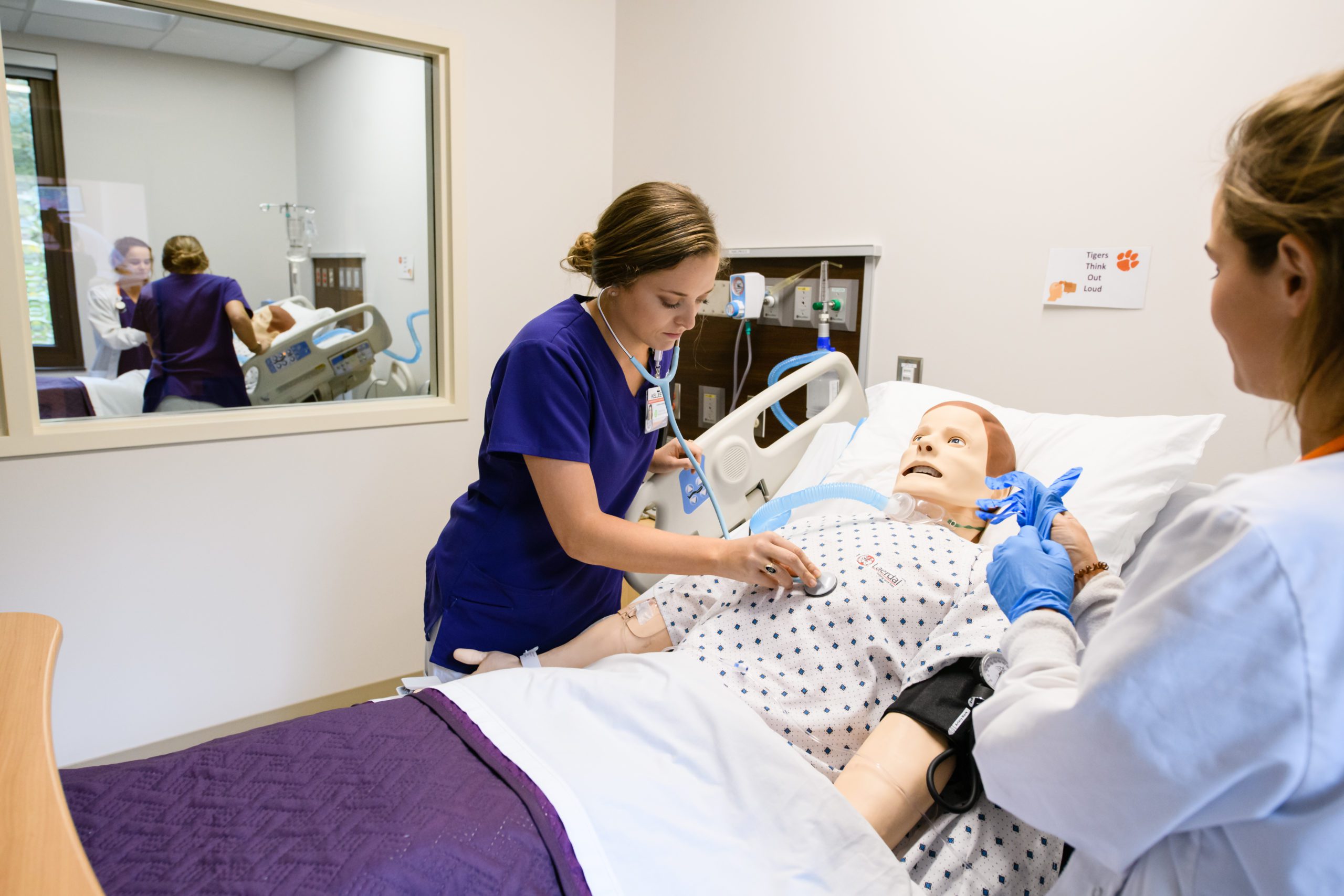A $1.5 million grant from the Health Resources and Services Administration (HRSA) to the Clemson University School of Nursing will fund 12 students’ tuition for various clinical education opportunities in Oconee County to bolster the medically underserved area’s future workforce.
Oconee County’s population experiences poor health outcomes for chronic pulmonary obstructive disease (COPD), heart disease, maternal-infant mortality and teen birth rate. According to the United States Census Bureau, Oconee County has an estimated population of 80,180 – with 24.8 percent of citizens aged 65 years or older and 16.7 percent of the population living in poverty. South Carolina Department of Health and Environmental Control (SC DHEC) 2019 community health data shows that 14.5 percent of adults delay medical care due to cost and there are only 7.4 primary care physicians per 10,000 residents.
The grant project is called, SET-UP: SET-ting nurses up for rural and underserved populations. It prioritizes social determinants of health, aging, maternal and child health, homelessness and behavioral and mental health in rural communities.
Participating nursing students will work at Prisma Health Oconee Memorial Hospital for their clinical classes starting in Fall 2024. In addition to these real-world experiences, students will also have opportunities to learn through realistic patient simulations. Simulations include virtual reality patient assessments and education, performing catheterization or tracheostomy care and managing high-risk births for simulated patients using wearable simulators worn by actors playing the role of patients. Students will also participate in an interactive simulation on poverty and homelessness designed to increase empathy and impact the quality of care for underserved populations.
“The goal of the project is to enhance nurse education and strengthen the nursing workforce by increasing training opportunities for undergraduate nursing students. These opportunities will increase students’ readiness to practice after graduation and equip them to address the community health needs of at-risk counties,” said John Whitcomb, project leader, chief academic nursing officer and director of the School of Nursing. “By working with Prisma Health and our faculty to elevate educational experiences for our students, we hope to bolster the future workforce and help improve health outcomes and health care equity across our state.”
Whitcomb is leading a team of faculty from the School of Nursing including Kimberly Hill, associate director of simulation; Lucia Gonzales, associate director of research; Jason Thrift, assistant professor; Jennifer Bagwell, senior lecturer; Leslie Ravan, director of undergraduate studies; Erin Shepherd, lecturer; Casey Hopkins, assistant professor; Kimberly Trammell, senior lecturer; Asa Briggs, psychiatric nurse practitioner; Mylene Boudreau, lecturer; and Veronica Deas, executive director of academic development from Prisma Health.
Beginning in Fall 2024, select junior and senior nursing classes will include additional information on project topics specific to underserved communities such as cultural literacy topics on rural and Appalachian social determinants of health; aging health; maternal and child health, with a focus on the teen mother; and homelessness, mental and behavioral health and the experience of poverty.
These course updates will be recommended by project faculty scholars who are nursing faculty members. These scholars are Thrift, whose expertise is in social determinants of health, rural Appalachia and geriatric care; Gonzales, whose expertise is in aging; Hopkins, whose expertise is in women’s health; and Briggs, whose expertise is in mental health issues of diverse and minority populations.
“This HRSA grant enables us to make sustainable changes for our students and influence long-term curriculum updates,” Gonzales said. “These course enhancements will ultimately benefit all Clemson nursing students and the communities they serve.”
This project is supported by the Health Resources and Services Administration (HRSA) of the U.S. Department of Health and Human Services (HHS) as part of an award totaling $1.5 million with zero percentage financed with non-governmental sources. The contents are those of the authors and do not necessarily represent the official views of, nor an endorsement, by HRSA, HHS, or the U.S. Government.
The School of Nursing is in the College of Behavioral, Social and Health Sciences (CBSHS). Established in July 2016, CBSHS is a 21st-century, land-grant college that combines work in seven disciplines – communication; nursing; parks, recreation and tourism management; political science; psychology; public health sciences; sociology, anthropology and criminal justice – to further its mission of “building people and communities” in South Carolina and beyond.







